Most will find juggling a headcount of a thousand-strong to be a daunting task, but Xavier Tan takes it in his stride, every day. Mind you, it is not just a mere thousand either, Mr Tan sits at the helm of tens of thousands of busy, six-legged, stinging critters – bees.
His beekeeping journey started in Malaysia, in 2009, when an opportune encounter with a beekeeper friend sparked his interest in the insects. After doing more research of his own and learning about the importance of bees to the world’s ecosystem and biodiversity, he was convinced to embark on the journey, as well.
Bees are a “keystone species” to Singapore’s ecosystems, Mr Tan claims on his website. According to National Geographic, this refers to a species that has a vital impact on the surrounding environment, without which the environment may look dramatically different or cease to exist. In the case of bees, losing them may mean a drastic reduction in crops due to a loss of pollinators, which will have rippling effects further up the food chain, affecting grazing animals, predators, and even mankind.
Fuelled by a love for these animals and a desire to protect the fragile bee species from the tragic fate of being exterminated by pest control, Mr Tan started Nutrinest in 2014 to further bee conservation in Singapore. Today, his business provides a range of services relating to bee conservation, including educational engagements, humane beehive removals, and the sale of raw honey harvested from the local hives.
Through his work, Singapore’s very own “bee man” hopes that he will be able to debunk the myth that bees are dangerous insects that have no place in an urbanised environment. With beehives being successfully maintained at a halfway house in Sembawang, within Orchard – the heart of town, and even in his HDB flat, Mr Tan has proven time and again that humans and bees can peacefully coexist in close proximity.
TheHomeGround Asia joins Mr Tan in his first apiary at the ECO Garden within halfway house Ashram, in Sembawang, northern Singapore, where mosquitoes prove to be a greater threat than bees. Amid the colonies buzzing about on their daily forage, we get up close and personal with Mr Tan to learn more about the inception of Nutrinest, his takeaways from being an urban beekeeper, and his hopes for the future of Singapore’s biodiversity.
(NOTE: This interview has been edited for clarity and length.)
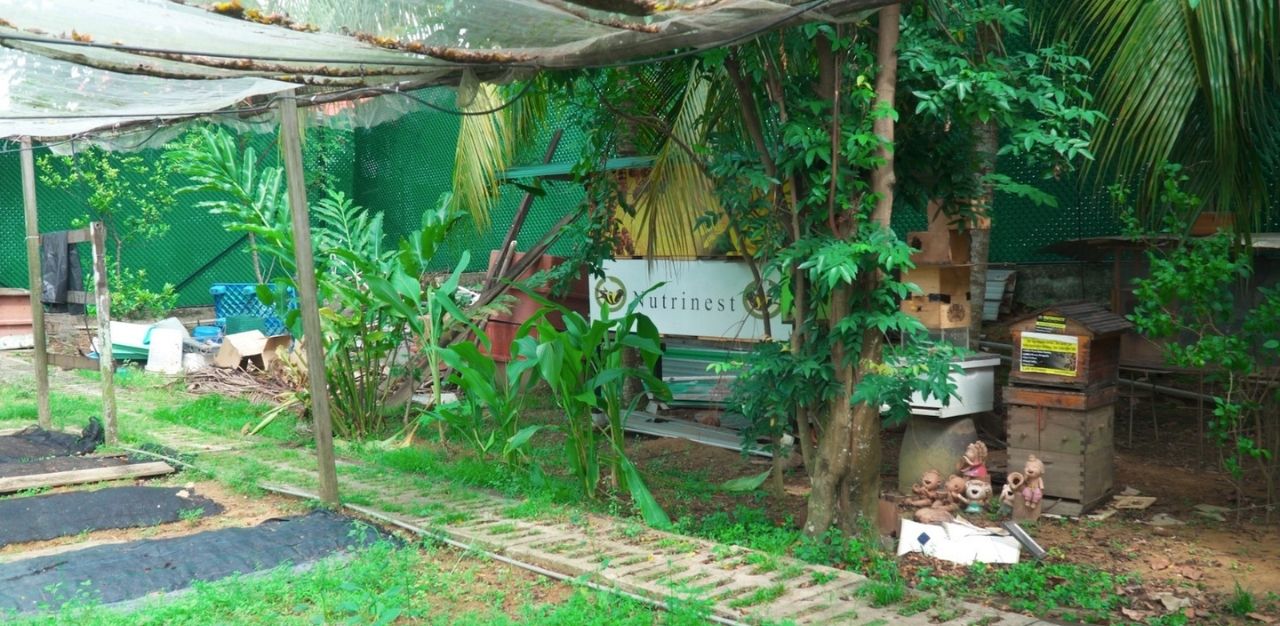
Xavier Tan: One of the incidents that made me decide to [start Nutrinest] was when I witnessed how pest control exterminated a colony of bees. Basically, they sprayed the bees with two canisters of pesticides, and within 20 minutes, you can see all the bees on the ground dying and suffering. I started thinking, ‘Why do we have to do this to these beneficial insects? Is there some way we can do better?’
TheHomeGround Asia: Can you tell me more about the process of rehoming bees? How is it different from what pest exterminators do?
XT: To help people remove the bees is actually the second choice. The best option to conserve them is to coexist and live together with them, much like how I have. The bees are behind me, and I’m just sitting here doing an interview, and there’s nothing wrong. The reason why people are treating bees that way [calling for pest extermination] is out of fear. If we can remove the fear, then people will be okay to coexist with them.
In case people want to remove the bees, I do so by finding the queen, and getting the queen into one of these containers [the beehives]. Knowing the behaviour of the bee that they will always follow the queen, if you get the queen inside, the rest will follow.
With this method, you have less agitation from the bees, and when they are not so agitated, they won’t try to attack people. In fact, the way that we remove bees is actually much safer than spraying them and agitating the bees.
Additionally, the chemicals used by pest exterminators are toxic, otherwise they won’t be able to kill the bees. So it’s not just the risk of getting stung by the bees, but also of getting exposed to toxic chemicals.
By removing the hives this way, we are able to capture as many bees as we can, as compared to spraying pesticides, where some of the bees may escape, and go somewhere else to make another hive. The bee problem continues, so it’s not solving the problem at the root cause.
THG: Why are bees important to Singapore and our ecosystem?
XT: People ask why we need to conserve bees since we don’t do agriculture or don’t have a lot of agriculture. But because we are trying to build a City in a Garden, NParks [the National Parks Board] have started to grow a lot of plants in Singapore, and all these plants will require bees to do the pollination, to make them healthier, to get them to propagate properly, to produce seeds for the continuation of their species. So we still need bees.
Additionally, Singapore is trying to support self-sustainability in terms of food security, so I’m sure that in the near future we’re going to have a lot of urban farming and those fruits that are produced by the trees or plants will eventually benefit us as well. And if by that time, we discover that we have no more bees, then we are in great trouble.
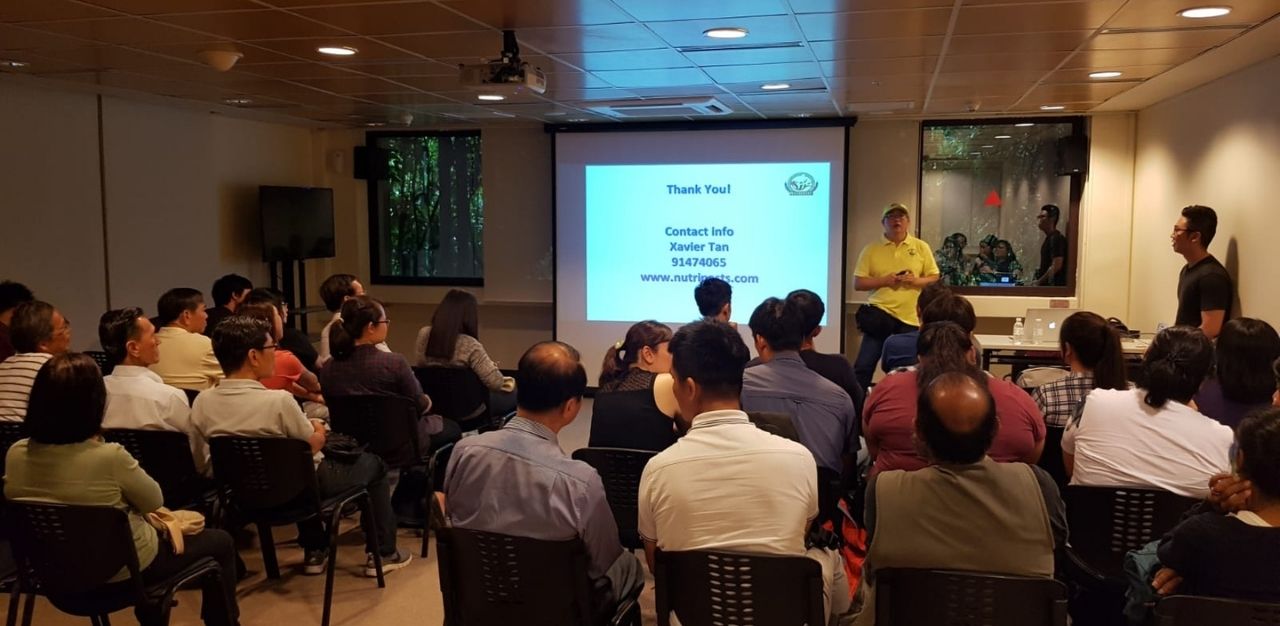
THG: Tell me more about Ashram, how did you start building a bee garden here?
XT: When I first started providing beehive removal services, I had the skill of removing, but I didn’t have a space to keep these rescued bees, so I kept them in my HDB flat. It was very exciting to do that, because as I removed more and more bees, my little tiny HDB flat is not able to accommodate for so many.
At the time, I happened to know a friend who is taking care of this halfway house, and I had a discussion with him about whether we can do a little project that will benefit the residents here.
Immediately I said, ‘Why don’t we have a garden here?’ So we designed the garden to make it so that there’s extracurricular activities for the residents. When they have free time, they can learn a little bit about gardening, and through the process, they learn that when you put in hard work, you can get returns from nature. That’s how they get these pesticide-free food which they can share with their families as well. In order to increase food production, we keep the bees in the garden, so it actually symbiotically helps me resolve my problem of space to keep the bees.
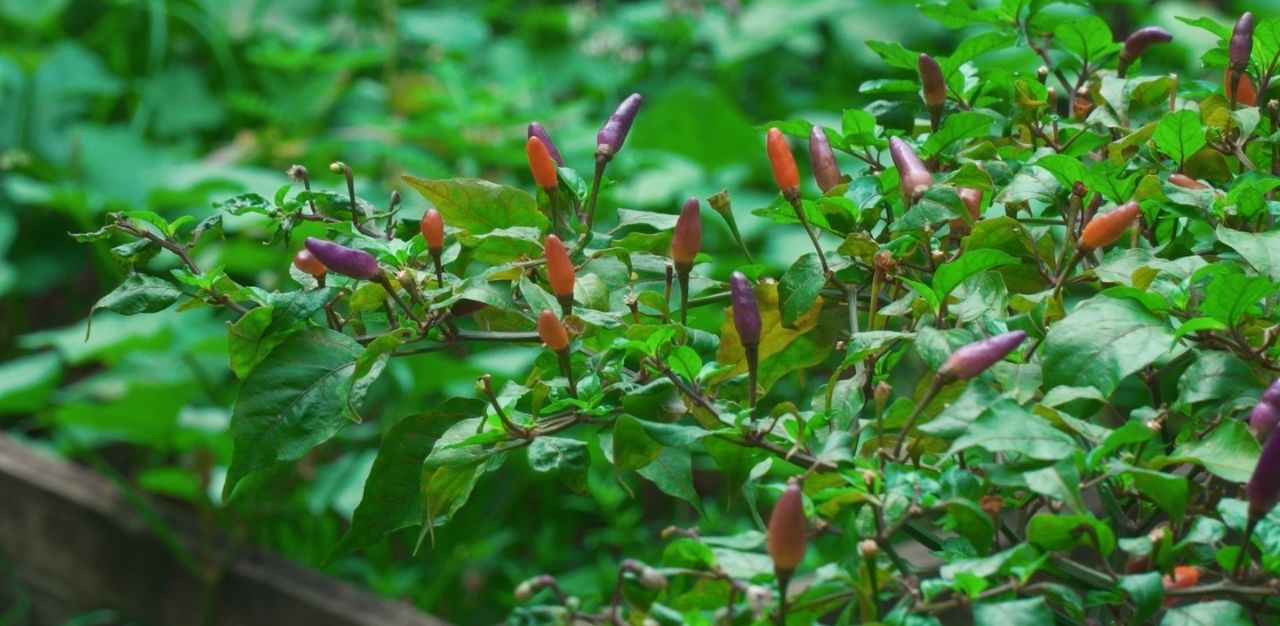
To date, this is our fifth year, and it’s going very well. At first, we were concerned that residents may get stung, but it’s proven that the bees are perfectly safe in an environment like this, so it’s very promising to see that, and encouraging for people to witness it themselves.
Because of this, JTC Corporation has also invited me to keep a garden in their area, as well as Temasek. So we actually keep bees in Orchard Road, in Temasek Shophouse, at their rooftop garden. It’s right in the heart of Singapore, and it’s very convincing that it’s actually okay to have urban beekeeping in Singapore. I’m hoping to have more collaborations with more organisations to keep bees all around Singapore.
THG: Keeping bees in your HDB flat must have been quite an adventure! How did your family respond to it?
XT: In the beginning, even though my family was very supportive of me doing conservation work, keeping bees at home was still a problem as the bees are free to roam around. When the bees fly around, they feel a little bit uncomfortable.
But as the days go by, it has now become a very common thing that when we’re eating at the dining table, the bees can come and join us. When we’re watching TV on the sofa, the bees will also come and visit us, but they mean no harm, they are just checking around. Sometimes, the bee will land on me and watch TV together with me, but after that, when the show is over, they will just fly away. They’re just like our pet, a tiny little pet, but you have a lot of them.
THG: What is a day in your life like? How do you care for the bees?
XT: Bees are like humans, they can take care of themselves. Unless you’re really into honey production, then we [need to do more work]. But since we just want to conserve the bees, what we do is give them a home, and check on them regularly to make sure they don’t have diseases.
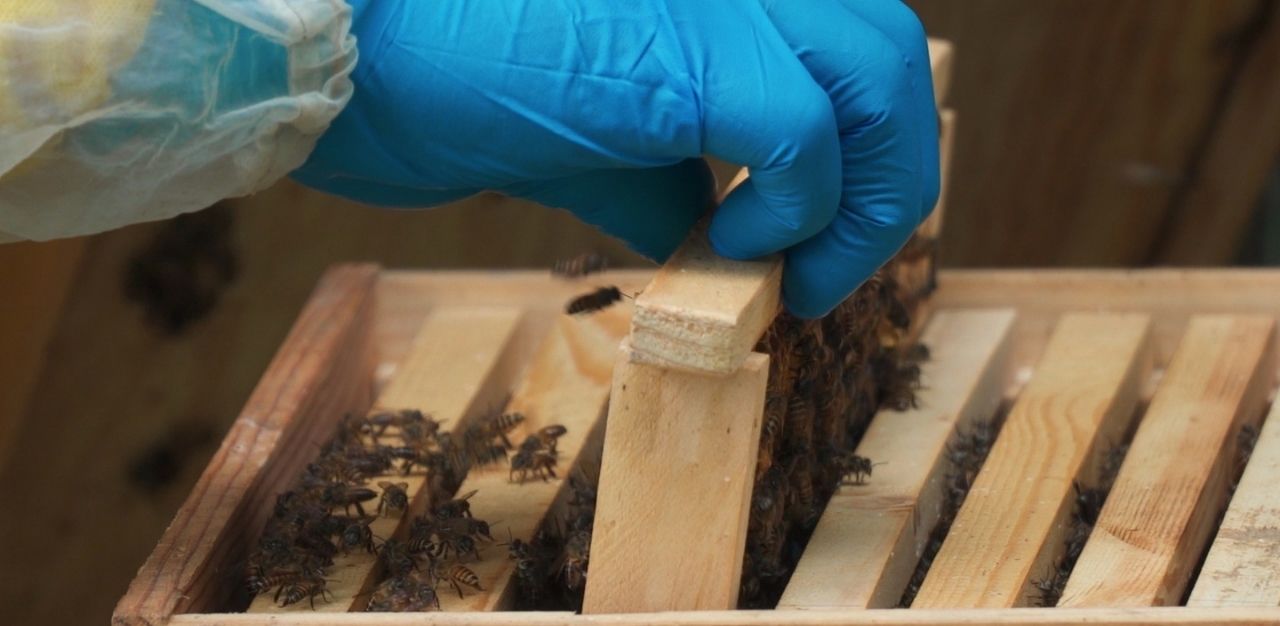
Just like humans, bees can fall sick. And when they fall sick, we have to take care of them, otherwise the disease may spread. As you can see, I don’t have the luxury of a big space. All the bees are cramming, like us, in a HDB flat, so if somebody falls sick, they need to be socially distanced to another location to make sure that their health remains in the pink.
THG: What are some common misconceptions that people have about bees?
XT: The biggest misconception people have about bees is that when they see a bee, they think the bee is there to sting them. And that when the bee stings them, they will die. I’ve been stung by bees over a hundred times, I’m still alive.
The truth is that when bees sting you, they will die if their intestinal system is dislodged during the process of stinging, and their intestines rupture.
Over here, we have close to 100,000 bees behind me, and none of them are interested in stinging me. They’re busy foraging, and are not disturbed by my existence so close to their hive. So it’s really not a big issue to co-exist with them. Once in a while, they may fly around, but they’re just checking on things. If there’s no danger, they will go back to their normal routine, so there’s no need to worry about having bees at home. We just have to be careful not to disturb the hive, that’s all.
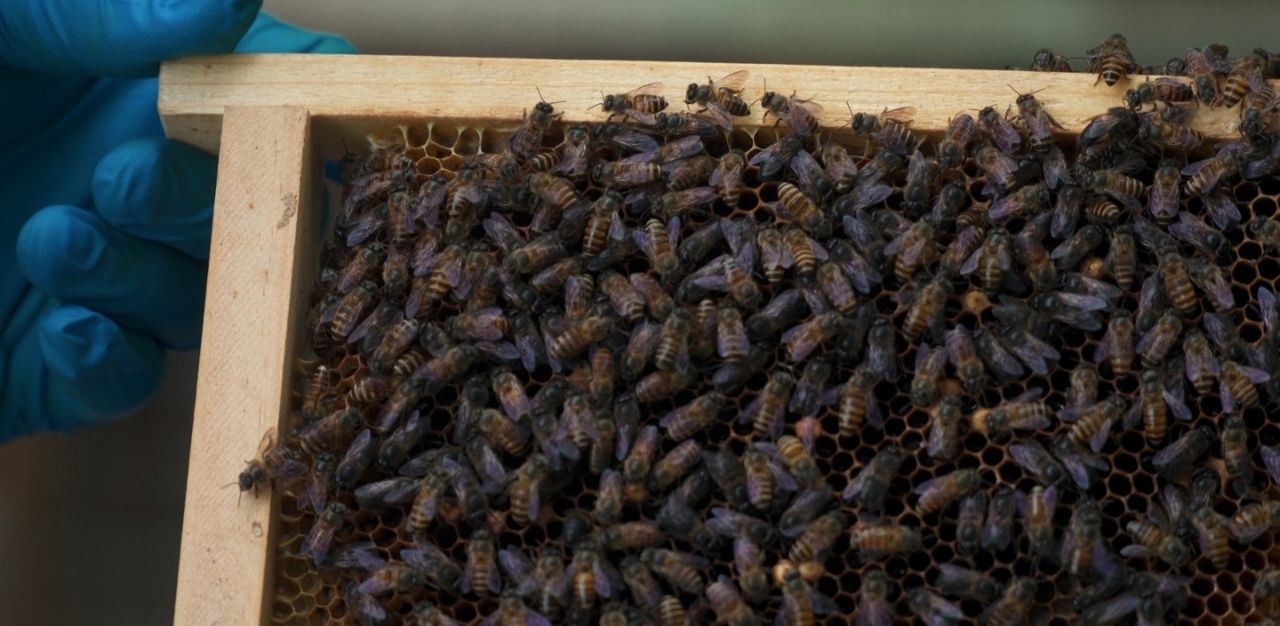
A second misconception people have is that if bees sting us, we will die. That’s only true for a small percentage of people that are allergic. Not only that, certain criteria need [to be fulfilled before bee stings become fatal].
First of all, you have to get stung by a few bees for the dosage to be strong enough to kill. Secondly, a certain amount of time will pass before you die. If we can have EpiPens ( a device that delivers a drug, epinephrine, which is used to treat someone having a severe allergic reaction) and antihistamines (medication that is commonly used to treat allergies) with us, then the risk of getting killed by a bee is much lower than dying in a car accident or a flight accident. That’s how safe it is.
THG: How about when you’re helping customers to remove hives, were there any cases that were particularly memorable?
XT: There’s one case where the father called me and said they had a beehive in the trees in the garden. At first, he wanted it to be removed, but upon assessing the video that he sent, I realised that the bees were actually in a perfect location. [The hive] was not inside their house or in a place where they often have to visit and do a lot of things, which could increase the chance of agitating the bees. Instead, it was just in a corner of their garden.
I tried to convince the father to keep the bees. The father was okay with them, but his only concern was that his kids will play soccer in the area near the tree, so if the kid were to accidentally hit the ball at the colony, it might cause a problem. I suggested for them to put a net between the trees and the field where the kids played soccer, and he actually did that.
I was quite happy that he tried it, and put in effort to buy a net, put up the net, and ensure that there was enough tension so that when the ball hits the net, it won’t hit the beehive.
Additionally, his wife was actually very afraid of bees initially, but when I met her the second time, she was so happy that her plants were doing so well because the bees were there. And she said that she’ll want to keep the bees. They called me back again after a few months and to their surprise, there’s another colony that visited and built another hive in their house.
Sadly, they are expatriates, and they needed to return to France because his contract was over. Before he left, he asked me to help them move the bees somewhere else in case the landlord got someone to exterminate them [after they were gone].
THG: That’s great that the family was convinced to co-exist with the bees! Would you consider that to be the most fulfilling part of your job?
XT: The most fulfilling thing is when I am able to successfully convince the family to keep the bees instead of removing or exterminating them. Of course, the next best is getting people to remove them humanely rather than exterminate them, so that’s the priority.
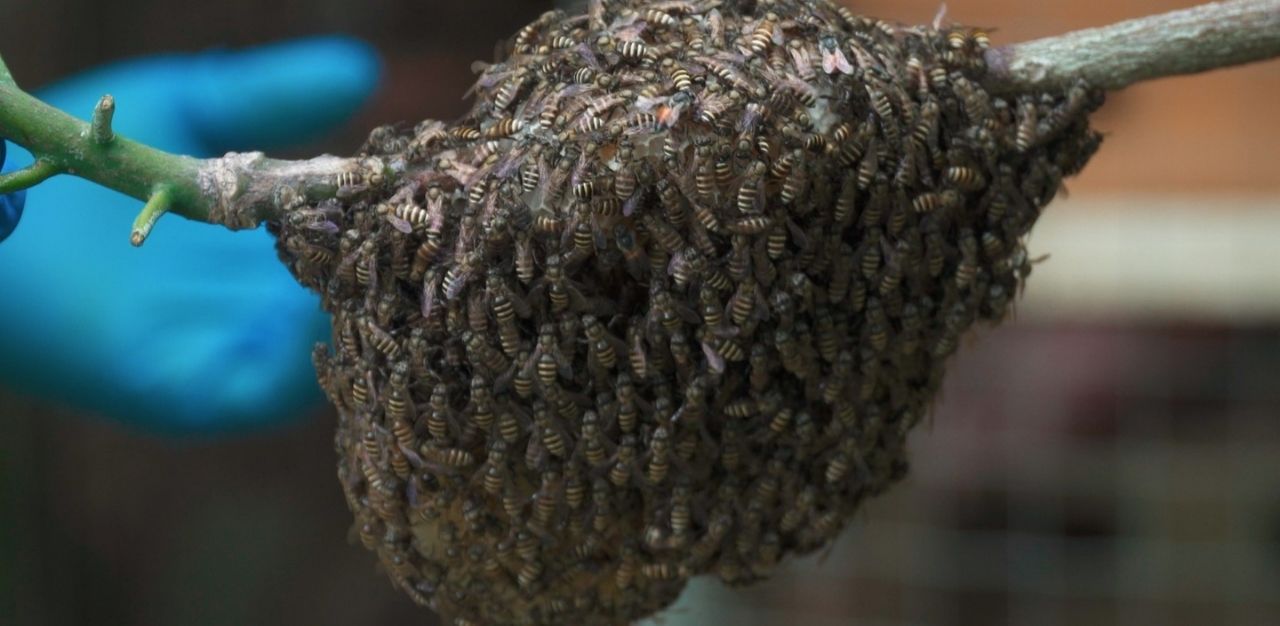
Up till now, my record shows that I’ve convinced 50 over families to keep the bees that they initially wanted to be exterminated.
When people have the opportunity to interact with the bees, it changes their understanding about bees, and a lot of them actually thank me for advising them and letting them have this opportunity to coexist with the bees. They become very welcome for the next colony to stay in their house, so it’s quite promising and fulfilling to have that happen.
THG: World Bee Day is coming up on 20th May. Do you have anything planned?
XT: Due to the current Covid situation, for the fourth World Bee Day, we will be conducting online live streaming at the garden in the morning and introducing the types of bees kept in the garden. There will also be a demonstration of honey harvesting with the help of two volunteers.
For people who are interested in what we do with the harvested honey, there will be a Facebook live event for people to participate where I will be showing how to select the honey for extraction (not all honey in the hives is good for extraction!).
We hope that with this event, it will create awareness about the importance of our local honey bees and how we can help to conserve them.
Join the conversations on TheHomeGround Asia’s Facebook and Instagram, and get the latest updates via Telegram.



























